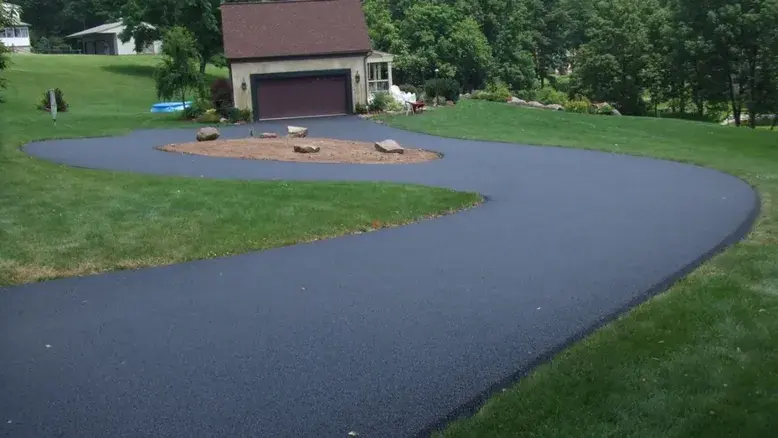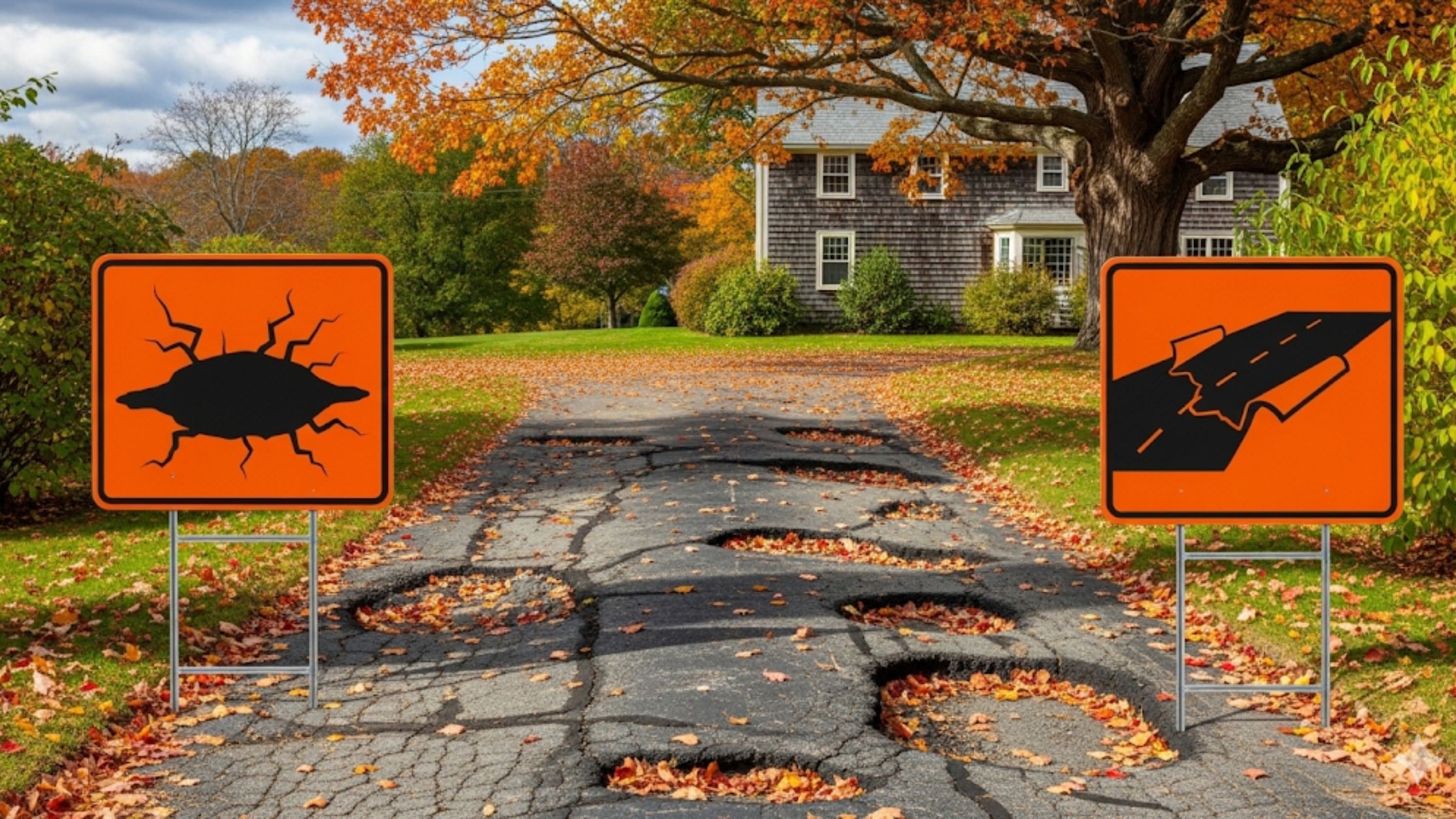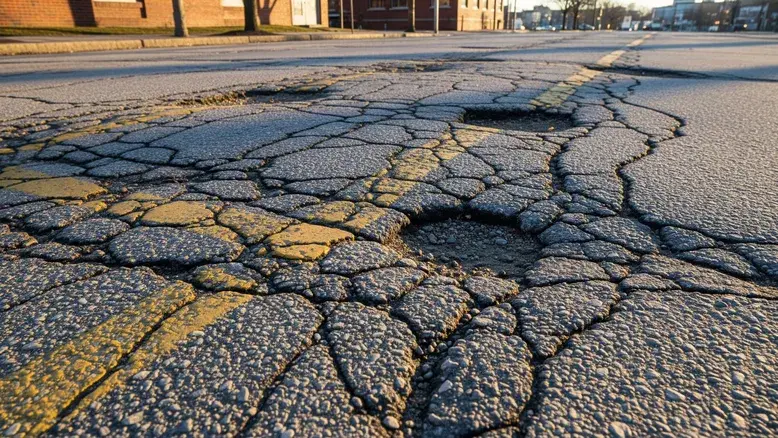Selecting the right seal coating service for an asphalt driveway or parking area in Springfield, MA can feel overwhelming. Local homeowners and property managers seek durable protection against New England’s freeze-thaw cycles, UV exposure, and road salt damage. A carefully chosen contractor not only shields asphalt from oxidation and water infiltration but also enhances curb appeal and prolongs pavement life. This guide walks readers through assessing qualifications, materials, processes, and costs, ensuring a confident decision.
Understanding Seal Coating and Its Benefits
What Is Seal Coating?
Seal coating is the application of a protective emulsion layer—often coal tar or asphalt-based—over existing pavement. This emulsion forms a barrier that prevents moisture penetration and oxidation, two leading causes of asphalt deterioration. Seal coats also fill hairline cracks and smooth surface irregularities, delivering both functional reinforcement and aesthetic renewal.
Why Springfield, MA Driveways Need Seal Coating
Springfield experiences wide temperature swings, frequent rain, and road salt exposure. These factors accelerate asphalt oxidation and lead to cracking. Seal coating slows down this degradation by sealing pores and reinforcing the binder that holds aggregate together. Homeowners who invest in routine seal coating every two to three years often avoid costly repaving down the line.
Top Benefits for Asphalt Owners
Beyond extending pavement life, seal coating restores the deep black finish that enhances a property’s exterior. The protective layer repels oil spills, resists UV damage, and prevents minor surface cracks from widening. A well-executed seal coating project also increases skid resistance, making driveways and parking lots safer for pedestrians and vehicles.
Springfield, MA Climate and Asphalt Maintenance
The regional climate plays a pivotal role in asphalt maintenance. Winter’s freeze-thaw cycles can push water into cracks, causing expansion and potholes. Summer’s heat and UV radiation accelerate binder oxidation, leading to chalking and brittleness. A quality seal coating service adapts to Springfield’s seasonal demands by scheduling applications during optimal weather windows—typically late spring through early fall—to ensure proper curing and adhesion.
Understanding local temperature ranges and humidity levels helps contractors choose appropriate sealant formulations. For instance, polymer-modified emulsions perform better under UV stress, while coal tar blends offer superior oil and chemical resistance. Homeowners should confirm that prospective providers test surfaces with moisture meters and follow ASTM guidelines for temperature and humidity during application.
Key Factors for Choosing a Seal Coating Contractor
1. Local Experience and Reputation
Contractors familiar with Hampden County conditions understand the impact of road salt and freeze-thaw cycles. These professionals often provide samples of driveways they’ve treated, showcasing consistent color and adhesion even after harsh winters. Reading online reviews, verifying references, and touring completed projects give insight into workmanship and reliability.
A contractor’s portfolio should include residential driveways, commercial parking lots, and municipal jobs. This diversity signals adaptability to different traffic loads and pavement designs. When evaluating local experience, ask whether the team adheres to National Asphalt Pavement Association (NAPA) best practices and participates in ongoing training.
In one typical middle paragraph, a local expert might mention specialized approaches to driveway prep, including power washing and crack routing. At this point, a homeowner might be drawn to explore additional offerings via seal coating service Springfield MA in the middle of the discussion.
2. Quality of Materials and Equipment
Ask about the sealant’s composition—coal tar emulsion versus asphalt-based or polymer-enhanced blends. Each has strengths: coal tar resists oils best, asphalt emulsions offer eco-friendlier profiles, and polymer modifiers boost flexibility. Confirm that the provider sources from reputable manufacturers with Material Safety Data Sheets (MSDS) on hand.
Equipment matters just as much. High-pressure washer units ensure complete cleaning, while industrial spray rigs deliver uniform coverage. Inadequate tools can lead to thin spots, puddling, or contaminants trapped beneath the sealer. Contractors should calibrate spray nozzles and track gallons per square foot to maintain consistent thickness.
In a separate paragraph devoted to true professionals, one may discover that The SealCoating Guys deploy heated holding tanks to prevent premature emulsion settling during cool mornings, exemplifying high technical standards.
3. Certifications, Insurance, and Compliance
Legitimate seal coating businesses carry liability insurance and workers’ compensation to protect homeowners from unforeseen damages or injuries. Certifications from associations like the Asphalt Emulsion Manufacturers Association (AEMA) indicate rigorous training in handling emulsions and adhering to environmental regulations.
Compliance with Massachusetts Department of Environmental Protection (MassDEP) VOC guidelines prevents fines and safeguards local air quality. Prospective customers should request proof of insurance, a certificate of good standing, and any local licensing required by Springfield’s public works department.
4. Warranty, Pricing, and Service Guarantees
Transparent pricing starts with a detailed estimate: square footage, prep work, crack sealing, material type, number of coats, and any line striping or marking. Be wary of low-ball bids that omit surface cleaning or crack repair, leading to faster wear.
Service guarantees—such as one-year adhesion warranties or extended maintenance programs—reveal a contractor’s confidence in their work. Homeowners should compare warranty durations and read policy fine print to understand coverage for peeling, discoloration, or premature cracking.
Step-by-Step Selection Process
Choosing the optimal seal coating provider involves these sequential steps:
- Conduct a Preliminary Inspection Evaluate pavement for extensive cracking, large potholes, or drainage issues. A thorough walk-around helps identify prep needs and estimate costs more accurately.
- Request Multiple Written Quotes Obtain at least three bids that outline prep, materials, labor hours, equipment used, and warranty terms. Compare apples to apples by ensuring each quote covers identical scopes.
- Verify Credentials and References Ask for client referrals, recent project photos, and proof of insurance and certifications. Contact past customers to gauge satisfaction, timeliness, and cleanup practices.
- Review Material Data Sheets Compare MSDS for each sealant type. Balance environmental concerns with performance needs—polymer-modified asphalt emulsions often yield the best flexural strength.
- Clarify Application Timeline and Conditions Confirm weather contingency plans. High humidity or impending rain can delay curing. Reliable contractors schedule by tracking local forecasts and adjusting start dates accordingly.
- Sign a Detailed Contract The agreement should specify start and end dates, payment milestones, liability coverage, surface protection protocols, and warranty language.
Once the contract is signed, contractors typically begin with a comprehensive cleaning phase, following this with crack sealing, edge detailing, then seal coat application, and finally line striping if requested.
Cost Considerations and Pricing Structures
Seal coating pricing in Springfield typically ranges from $0.12 to $0.30 per square foot, depending on service complexity. Basic clean-and-coat jobs occupy the lower end, while projects requiring extensive crack routing, repair, and multiple coats command higher rates.
Pricing also fluctuates with seasonal demand. Contractors often offer peak-season discounts in late spring or early fall to fill scheduling gaps. Material cost swings—driven by crude oil price changes—can impact bids. Request locked-in pricing clauses in the contract to protect against mid-project surcharges.
Integrating Additional Services
While seal coating stands on its own as a critical maintenance step, many contractors offer value-added services that complement asphalt preservation. Crack sealing and repair using hot-pour rubber stop water ingress at source, preventing cracks from widening and undermining the seal coat’s effectiveness.
Line striping, handicap markings, and pavement logos enhance functionality and compliance with the Americans with Disabilities Act (ADA). Some providers also deliver slip-resistant aggregate broadcast options for high-traffic walkways.
Homeowners with landscaping ambitions may appreciate integrated drive border installations or cobblestone edge enhancements. This holistic approach streamlines scheduling, reduces overall costs, and ensures each component interacts seamlessly to deliver maximum pavement longevity.
In a mid-content paragraph exploring advanced offerings, readers may discover specialized packages under Seal Coating for Springfield Homes designed for residential curb appeal and neighborhood aesthetics.
Frequently Asked Questions
1. How often should an asphalt driveway be seal coated in Springfield, MA?
Most experts recommend every two to three years. However, high-traffic driveways or those exposed to heavy road salt may benefit from annual applications to combat accelerated oxidation.
2. What is the best time of year to apply seal coating in Springfield?
Late spring through early fall offers ideal conditions: temperatures consistently above 50°F with low humidity and minimal rainfall. Contractors typically avoid application during rainy spells and freeze warnings.
3. How should I prepare my driveway before seal coating?
Remove vehicles and trailers at least 48 hours in advance. Clean the surface of debris, oil stains, and vegetation. Any oil spots should be treated with a degreaser, and major cracks filled to ensure even adhesion.
4. How long does seal coating take to cure and reopen the driveway?
Initial drying takes two to four hours, but full curing requires 24 to 48 hours depending on weather. Avoid heavy traffic for at least one day and refrain from parking trailers or vehicles with heavy loads for up to three days.
5. How much does professional seal coating cost per square foot in Springfield?
Standard seal coating runs from $0.12 to $0.30 per square foot, influenced by scope, sealant type, and site conditions. Bundled services often reduce the overall per-square-foot cost.
Conclusion
Choosing the right seal coating service in Springfield, MA demands attention to local climate challenges, material quality, contractor credentials, and clear pricing structures. By following a systematic selection process—pre-inspecting pavement, gathering detailed quotes, verifying certifications, and comparing sealant options—property owners safeguard their asphalt investment. Integrating crack repair, line striping, and complementary landscaping further enhances durability and curb appeal.
For homeowners and property managers seeking proven expertise, lasting warranties, and a comprehensive approach, Comprehensive Seal Coating Service in Springfield, MA stands ready to deliver superior results.
The SealCoating Guys provide professional asphalt maintenance backed by local experience, top-tier materials, and customer-focused service. Whether it’s routine sealing or a full suite of pavement solutions, they ensure every surface is protected, rejuvenated, and ready to withstand Springfield’s changing seasons.






.webp)

.svg)



